Joel Gunter
Reporting from Bucha, Ukraine

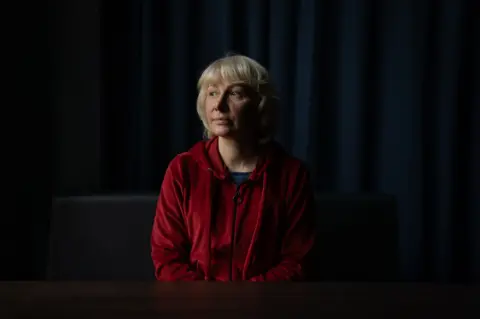 BBC
BBC
Tatyana Popvytch's son was taken to Russian. "He is so vulnerable," she said. "I worry that he will lose his sanity there."
Tatyana Popovytch had contacted every agency she could think of. She had walked every step her son Vladislav could have taken after the Russians opened fire at his car, leaving him to flee with a bullet in his leg. She had looked in mass graves, reviewed pictures of the dead, watched exhumations. And after a month, she knew no more than when she had started.
Then a stranger called.
Serhii had just been released from a Russian prison in Kursk. At morning roll call, the prisoners could not see one another, but they could hear each person state their full name and home village. Serhii memorised as many names and places as he could – 10 in total, he said – and on 9 May 2022 he called Tatyana to say that he had heard her son's voice.
Like Vladislav, Serhii was a civilian captured from Bucha at the start of the war, when hundreds of civilians were taken from this area. Vladislav was 29 at the time. Now 32, he is still in the prison in Kursk. Serhii couldn't explain to Tatyana why he had been released and Vladislav hadn't. Tatyana was just glad to hear that her son was alive. "I was so overjoyed I lost the stutter I'd had since he was taken," she said.
Three years later, to the day, Tatyana was sitting in a café in Bucha, not far from where her son was abducted, looking over the scant evidence that he was still alive: two letters from him – short, boilerplate texts, written in Russian, telling her he was well fed and well looked after. Each letter had taken around three months to reach Tatyana, making it hard for her to feel very connected to her son at any point in time.
"My son is very gentle and sensitive," she said, with the pained expression of a parent who cannot protect their child. She was looking at pictures of Vlad ballroom dancing – a hobby from a young age. "He is so vulnerable," she said. "I worry that he will lose his sanity there."

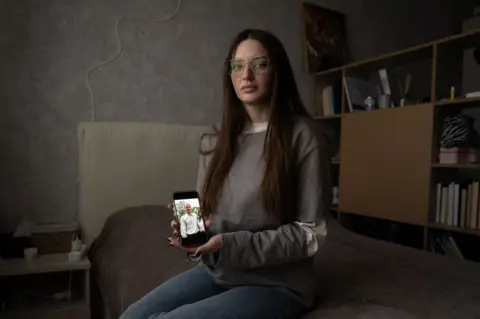
Julia Hripun with a picture of her captive father. She has launched an charity to help bring civilians home.
According to Ukrainian authorities, nearly 16,000 Ukrainian civilians are still in captivity in Russian prisons after being abducted by the invading army – not counting the more than 20,000 Ukrainian children estimated to have been taken to Russia.
There are growing fears now among their many thousands of loved ones, amid the apparent progress towards peace talks, that they could be forgotten or lost in the process. And those fears appear to be justified.
Under the Geneva Convention, there is a recognised mechanism for exchanging prisoners of war, but no such mechanism exists for the return of captured civilians, leaving even top Ukrainian and international officials searching for an explanation as to how they might be brought home.
"When I attend official meetings, at the ombudsman's office or elsewhere, no one talks about getting the civilians back in the event of a ceasefire," said Yulia Hripun, 23, whose father was kidnapped early on in the war from a village just west of Kyiv.
In the weeks after learning of her father's captivity, Yulia used Facebook to contact another daughter of an imprisoned Ukrainian and the pair launched a new organisation to campaign for all the civilians' release.
The group has met representatives from the UN, the European Parliament, the governments of several EU countries and the US embassy in Ukraine.
"We spoke with them but it came down to the fact that they honestly don't understand what's going to happen," Yulia said, of meeting the Americans.
"The only thing they said is that Trump is interested in the issue of deported children and that maybe civilians could somehow fit into that category. But they are actually different categories that can't be combined."
Worryingly for Yulia and other relatives of the captured civilians, top Ukrainian officials are not pretending to have a stronger idea.
"I do not see the real, effective approach to returning the civilian detainees to Ukraine," said Dmytro Lubinets, the country's human rights ombudsman. "We do not have a legal basis or the mechanisms for returning them," he said, frankly.

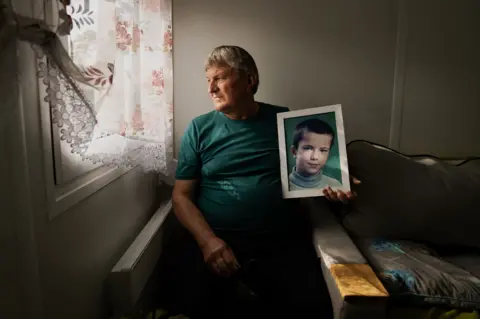
Petro Sereda with a picture of his missing son. "You want to believe he is coming home," Petro said.
Further complicating the problem is Russia levelling criminal charges against some of those captured during the invasion.
"And when you see these charges, it is often 'actions against the special military operation'," Lubinets said. "Can you imagine opening an investigation against a Ukrainian civilian for simply resisting the invading Russian army, on Ukrainian territory?"
In May, Russia released 120 civilian detainees as part of a larger swap of prisoners of war, and further exchanges are expected. But the numbers are still vanishingly small compared to the tens of thousands said to have been seized – adults and children. And great uncertainty remains over the path towards a negotiated peace.
"You want to believe he is coming home, at the same time you can't believe it," said Petro Sereda, 61, a bus driver from Irpin, near Kyiv, whose son Artym was taken prisoner more than three years ago. "It is extremely difficult."
Petro and his wife live in shipping container-style temporary accommodation in Irpin, because their home was destroyed in the invasion. Even three years on, every time the phone rings Petro thinks it might be Artym.
"It is one thing to have a letter saying he is alive, but to hear his voice… That would be the joy that he is really alive."
The families live like this, in desperate hope. The dream is that they get to see their loved ones again. It is not a straightforward dream, though – some fear that Russian captivity will have caused lasting damage.
Tatyana, whose ballroom-dancing son Vladislav was abducted from Bucha, said she shuddered to hear the Russian language now "because it is the language my son is being tortured in."
There is also the issue of what is missed. During Vladislav's detention, his father passed away unexpectedly at just 50, carrying a well of guilt that he was not able to protect his son.
All Tatyana can do is prepare mentally for Vladislav's return. She expected to "feel every possible emotion," she said. "It is all I think about. All the time, every day."
Daria Mitiuk contributed to this report. Photographs by Joel Gunter
.png)
 6 months ago
22
6 months ago
22
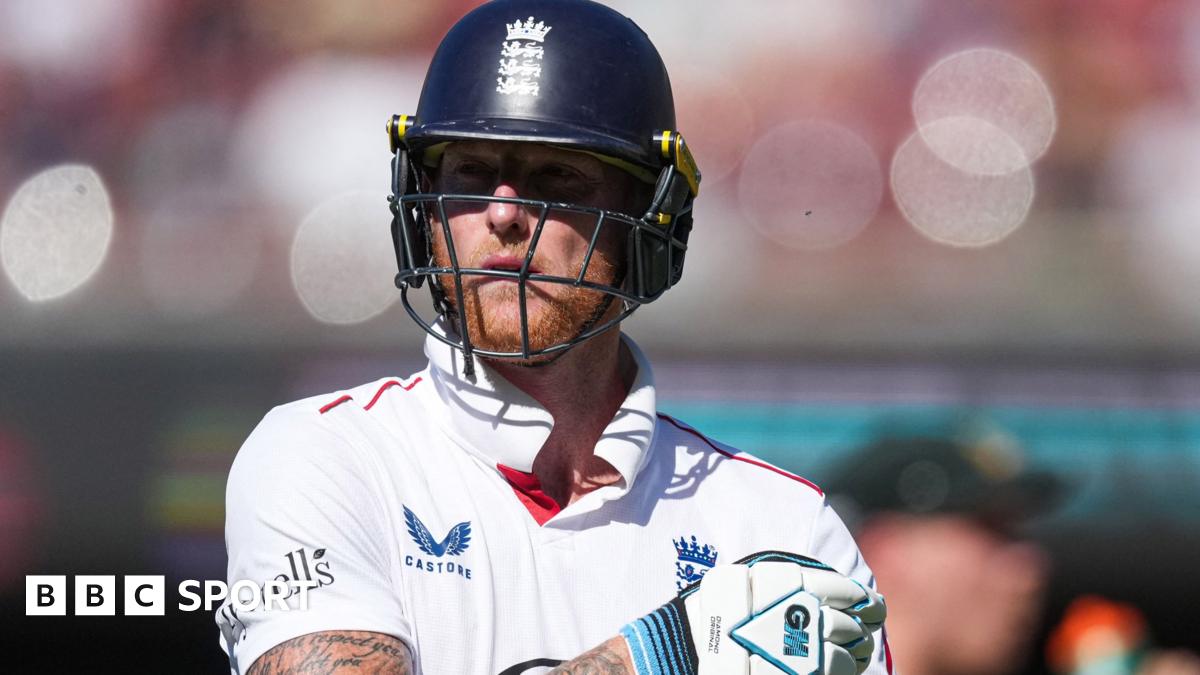
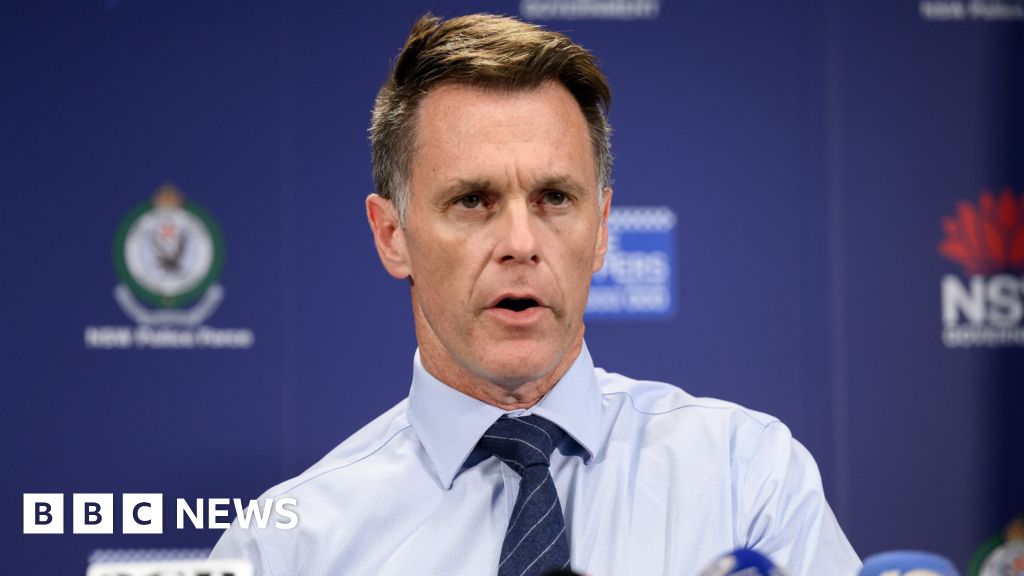
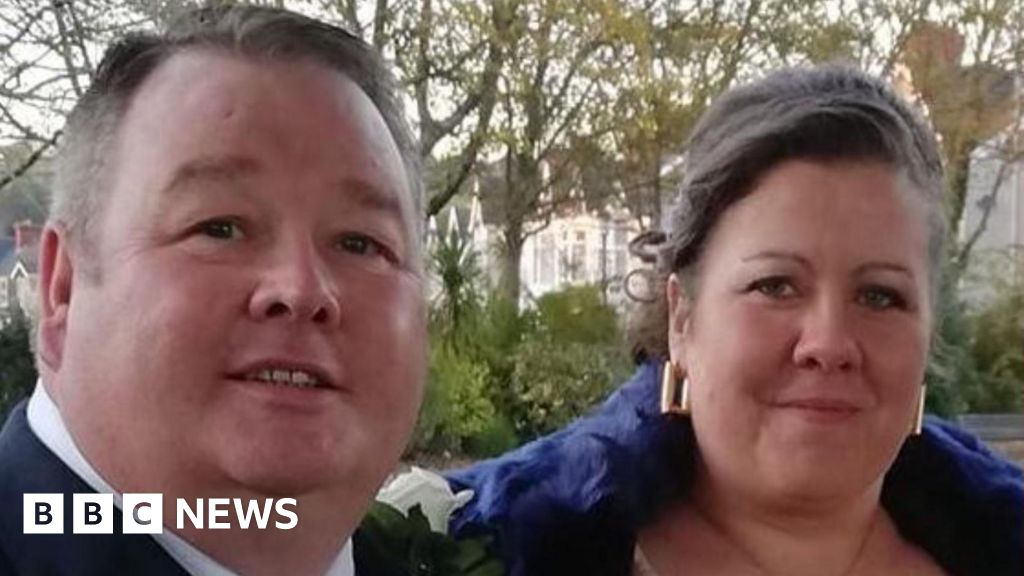





 English (US) ·
English (US) ·